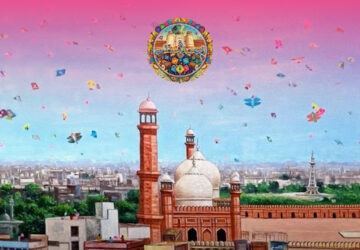I was five when my family moved to Islamabad from Karachi and for most of the time until now, I’ve always regretted this shift. I’d wait impatiently all year for our trips to my grandparent’s house in the port city and I’d complain about how boring and fake my new home city was. While Karachi still has its special place in my heart, I feel I’ve learned to love Islamabad.
This article compiles 5 benefits of living here:
1. The beauty
This point can not be denied. With Margalla views and lush green trees all around, Islamabadis are spoilt by the immense natural beauty. Since this city was originally a forest, people can simply stroll out of the house for a walk and find themselves surrounded by beautiful green trees and fresh air. There’s also barely traffic or rickshaws, making it so much quieter and peaceful.
2. The law and order situation
Compared to other cities like Karachi, this is a major point since we can comfortably go out on the streets most of the time and don’t have to hide our phones or money when we are outdoors. Although the situation is not perfect, it is superior to that in other cities.
3. The weather
Inhabitants of Islamabad get to experience all four seasons from sunny and sweaty summers to freezing cold winters and heavy rains. Unlike other cities, it isn’t predominantly hot or cold throughout the year so there’s variety!
4. Well-planned
Islamabad is well-planned with proper systems, appropriate rain management and self-sufficient neighborhoods with markets, mosques and parks closely available to most. The traffic is also barely ever bad and most people can travel from one place to the next without much trouble.
5. Near the mountains
The mountains are a definite perk for those living in Islamabad who can drive up to the hill stations and enjoy nature’s goods whenever they please without spending on a ticket or wasting any time. The routes to all the beautiful mountainous regions from Murree and Nathia Gulli to Skardu and Muzaffarabad are at a stone’s throw from Islamabad.
And just because they came to mind while writing this, 3 downsides:
1. No great schools or universities
Students in Islamabad don’t have many choices with no established institutions like KGS or Aitchison available here. Even universities like AKU and LUMS are in Lahore and Karachi and most students from here have to move out for university.
2. More expensive than other cities
From land to clothes and accessories, everything is much more expensive in the capital. Unfortunately, although the prices are higher, the quality and variety for most products is not any better here than elsewhere and people are better off shopping from other cities across the country.
3. Too quiet
Islamabad is much less exciting than other cities in Pakistan. The lack of noise on the roads does mean that there is not much to do and there are not a lot of people either. While this can be boring at times, it also makes Islamabad a more homely city where everyone knows everyone.
One thing cannot be denied, it is Pakistan’s best retirement city.
Do you agree? Any points to add? Let us know in the comments!







